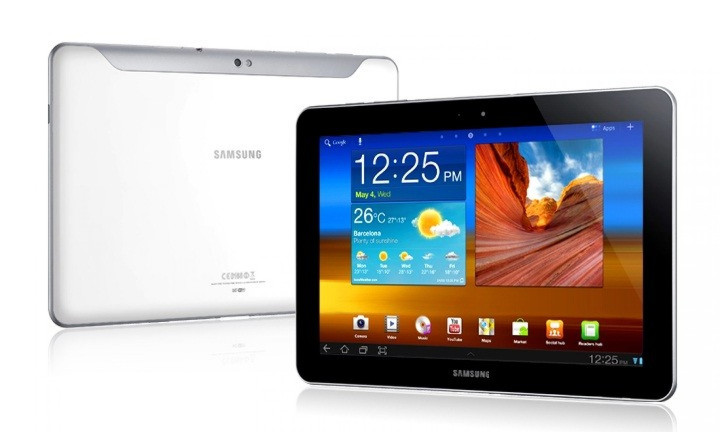Apple Granted Preliminary Injunction Against Samsung Galaxy Tab 10.1 Sales In US

After a failed attempt to ban the Samsung Galaxy S3's sales in the U.S., Apple finally has managed to stop sales of its South Korean rival's Galaxy Tab 10.1, deemed by many as the top contender to the iPad.
On late Tuesday, U.S. District Judge Lucy Koh in San Jose, California, issued a preliminary injunction on the Samsung Galaxy Tab 10.1 in the U.S. Koh denied Apple's request for a ban on the tablet and multiple Galaxy smartphones in the country in December, last year. However, a federal appeals court instructed Koh to reconsider Apple's bid on the tablet, Reuters reported.
According to Koh, it was the strength of Apple's case on the merits that left her no choice but to grant the injunction. She said that Samsung is competing unfairly by flooding the market with infringing products.
While Samsung will certainly suffer lost sales from the issuance of an injunction, the hardship to Apple of having to directly compete with Samsung's infringing products outweighs Samsung's harm in light of the previous findings by the Court, Koh wrote in her order.
A Tiny $2.6 Million Bond
As per the judgment, Apple is required to post a $2.6 million bond to compensate Samsung for the loss, if it loses the case. However, as The Verge noted, Koh's order seems to suggest that she doesn't think Samsung has much of a case here.
It's no coincidence that Samsung's latest products look a lot like the iPhone and iPad, from the shape of the hardware to the user interface and even the packaging, Apple spokeswoman Kristin Huguet told AllThingsD. This kind of blatant copying is wrong and, as we've said many times before, we need to protect Apple's intellectual property when companies steal our ideas.
Samsung, on the other hand, expressed its disappointment in the ruling, saying that the order applies only to the Galaxy Tab 10.1 sold in the U.S. while other tablets will continue to be available to consumers in the U.S.
The ruling will ultimately reduce the availability of superior technological features to consumers in the U.S., Samsung said in an e-mailed statement to Bloomberg. If Apple continues to sue based on generic design patent claims innovation and progress in the industry could be restricted, said the company.
The relief being given to Apple here is extraordinary. Preliminary injunctions are rarely asked for and rarely granted, Reuters quoted Colleen Chien, a professor at Santa Clara Law in Silicon Valley, as saying.
That this was a design patent and copying was alleged distinguish this case from plain vanilla utility patent cases. Cases involving these kinds of patents are based more on a counterfeiting theory than a competition theory, so I don't expect this case to have ramifications for all smartphone disputes, but rather those involving design patents and the kind of product resemblance we had here.
Apple has reportedly waged an international patent war since 2010 as part of its attempt to halt the growth of Google's Android operating system. A crucial injunction in one of the U.S. legal cases could make Apple's stand stronger in negotiating cross-licensing deals, where companies agree to let each other use their patented technologies, according to Reuters.
Meanwhile, Apple's rivals say that the Cupertino tech giant is using patents too aggressively in its bid to wipe out competition.
According to research firm Display Search, Apple sold 13.6 million iPads in January-March, capturing 63 percent of the global tablet market. On the other hand, Samsung sold 1.6 million tablets, giving it 7.5 percent of the market. The company launched the Galaxy Tab 10.1 in June last year and unveiled an upgraded version, the Galaxy Tab 2 10.1 in May.
The case in U.S. District Court, Northern District of California, is Apple Inc. v. Samsung Electronics Co. Ltd., 11- cv-01846.
Check out the court documents below:
Source: PMALL5070 (SCRIBD)
© Copyright IBTimes 2024. All rights reserved.





















